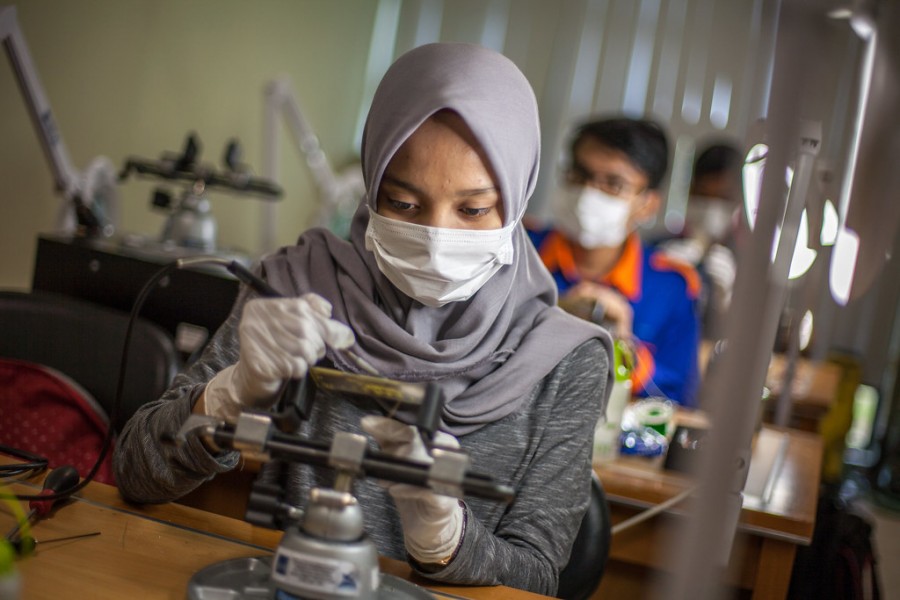The education ministry's decision to open government polytechnic institutions and colleges to adult people of any age for admission has angered diploma engineers. At a view-exchange meeting held at the Institute of Diploma Engineers Bangladesh (IDEB), they vented their ire and threatened with countrywide protests if the decision is not revoked soon. The diploma engineers fear that if people as old as young students' parents or grandparents get admission to such educational facilities, it will severely disrupt the academic atmosphere. Young learners will feel ill at ease studying side by side with such old and experienced people.
Ideally, education should have no age bar. But then learning is a process where camaraderie also plays a vital role. If there are many an odd man out in a class, students of the proper age may feel overawed by their presence. Even general students will not take it easy if there are several Abul Mansur Ahmed's famous 'Adu Bhais'.
The motive behind such diploma re-education, however, should not be erred by any means. This is most likely to be part of an effort towards creating qualified labour and quality manpower resources. So far this country has been exporting manpower that is mostly engaged in manual labour abroad. Now that many of them are returning home following the pandemic-induced global economic recession, their chance of getting such jobs back would be next to nothing. Such a consideration may have prompted the authority to open the door of technical and diploma education to willing people older than their far junior peers.
The fear that people of the ages of general students' parents or grandparents will come in droves is most likely to be misplaced. But there is nothing to be surprised if many returnees --experienced enough but with no certificates to show --twice the young learners' age seek admission to polytechnics and technical schools and colleges.
The discussants at the meeting, however, praised the government policy taken earlier to raise the percentage of intake in polytechnic and technical schools and colleges. According to the policy instruments, admission to such institutes would be raised to 20 per cent by 2020, 30 per cent by 2030 and 50 per cent by 2040. Currently this percentage is 17 per cent, not 20 per cent. Clearly, the policy has emphasised the need for doing away with churning out unemployed graduates. Instead, it wants to create a pool of technically sound manpower which would be in great demand both at home and abroad for employment.
A programme like this should not be interfered with or otherwise disrupted when the progress made looks quite appreciable. Already introduction of a vocational subject to class VII and VIII has cleared the way for strengthening similar courses for class IX and X. Those who would opt for vocational education will be able to pursue their careers in the related fields.
So, it would be better if separate arrangements for diploma engineering and vocational education for senior adult students are made. The general secretary of the IDEB has proposed for a compromise formula in that the elder students can either be offered evening courses -which may suit them better as well -or admitted to a few designated institutes. Of the 49 government polytechnics and 64 technical schools and colleges, about four to five can be designated for the purpose. There are also about 500 such private institutes offering similar education. A few of those can as well be assigned to the task.
In this context one compelling argument concerns the expenditure on producing a diploma engineer. The government has to spend about Tk 0.7-0.8 million on a diploma engineer. Such a young engineer can serve the country for 40 to 50 years but if the same amount is spent on a student of 30-40 years old, the latter might serve for 10 to 20 years. Not a wise investment.


